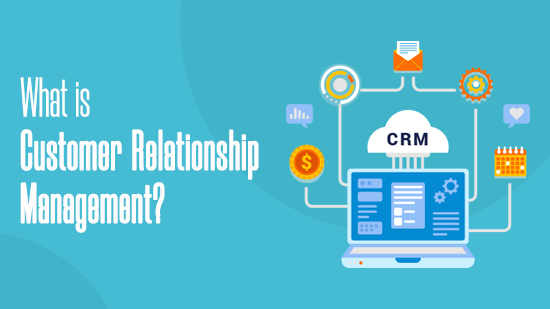All that you should know about CRM (Customer Relationship Management)

CRM stands for customer relationship management, a combination of strategies, processes, and technologies to engage, retain and acquire customers. It’s a well-integrated technology that helps manage relations and interactions with existing and potential customers.
It helps you keep track of the interactions and identify their interests and behaviour by keeping a record of them. It also helps streamline sales and marketing efforts, customer service, and other management efforts to determine how to appeal to customers quickly.
We at SalesPanda define CRM as a way to manage, measure, and monitor the sales and marketing activities on your web and app platforms. It helps you track your engagement activities across channels, customers’ interest and behaviours to provide them with relevant information and prospect better to bring in higher conversion rates. Here you can manage your contacts, leads and engagement.
Forbes defines Customer Relationship Management (CRM),
It’s software that offers tools and capabilities to manage a business’s lead pipeline and customer journey efficiently. It gathers personal data to form a holistic view of customers and leads and then makes this data visible to company teams like sales, marketing and customer service. Company reps can then use this 360-degree view of customers or leads to offer personalised experiences that close sales and build loyalty.
Why do organisations need CRM?
Sales teams that adopted CRM have grown productivity by 34% – Salesforce
1. To reduce manual efforts- Minimising manual efforts and automating certain sales processes can save the time of teams. Instead of managing and organising contacts, they can focus more on improving sales strategies, lead nurturing and opportunities to grow sales. If you have limited marketing but require a one-stop solution to manage and nurture leads, then CRM software is a better ROI option.
2. For central visibility of customer data- Instead of relying on multiple spreadsheets, sticky notes, diaries, emails etc., from all the different locations, CRM provides you with a well-integrated centralised visibility into customer interactions, and funnel view to make informed business decisions quickly. Also, having desired visibility can help improve engagement efforts and increase customer retention.
3. To get visibility on your sales teams- Know what your sales teams are up to where they are in their sales engagement cycle, how is their performance, and what type of engagement is working for them etc. An impactful CRM allows teams to view details from their mobile so that all the necessary information is easily accessible whenever required. It also helps keep track of what’s working for the business, what resources need to be allocated, and what should be the way forward to guide them better.
4. To create workflows- Since customers can be reached and engaged via different mediums like calls, emails, social, chat etc., CRM solution helps you resolve challenges for customer-facing teams and sales reps. All the activities can also be tracked and prioritised based on the call, emails and other communication channels. For instance, with SalesPanda’s CRM solution, once a seller shares a trackable link on WhatsApp, and the customer clicks on the link, they get notified about the prospect visit instantly. The interested prospects’ details can be checked in the app and the seller can directly perform an action such as a call, email, or even a task/reminder to further engage with prospects.
CRM isn’t just for enterprise businesses or Fortune 500 companies. In fact, 91% of companies with 10 or more employees use a CRM. (Grand view research)
How to evaluate the CRM that fits your requirements?
Once you decide to adopt a CRM, there are certain parameters that you should consider and evaluate accordingly.
1. Annual Expenses- How investing in a CRM can directly affect your ROI is something important to consider beforehand. Ensure that you have decided on the exact number of users of CRM and calculated the expense accordingly. If it crosses your planned budget you can consider another CRM vendor.
2. Implementation Time- Be sure that you know in advance if there would be a third-party involvement in implementing CRM, so you can plan the approximate process, policies and reasons etc. The implementation is considered complete only when they can actually use the CRM.
3. Accessibility- It is a fast-paced world where everything requires quick actions and solutions. So, CRM should be accessible and compatible across different devices. Always check if the CRM you are evaluating comes with these options and compatibilities.
4. Easy to Integrate- As a business, you definitely won’t be limited to using just one software or tool (marketing automation, learning management system, call tracking, business intelligence etc.) hence, the CRM you are evaluating must provide you with the capabilities to integrate easily.
5. Scalability- Another important question while evaluating a CRM is how scalable and customisable it is as per your strategic and goal-oriented approach. For instance, permission settings as per the team growth, cost of growth, sales funnel stages, filters, data sorting etc.
SalesPanda is a sales enablement and acceleration platform where we offer different business solutions to help organisations leverage their extended enterprise with control and compliance. One of the very essential parts of our well-integrated platform is Customer Relationship Management, where sellers can easily manage, organise and track the sales pipeline to boost sales effectiveness and efficiency.
